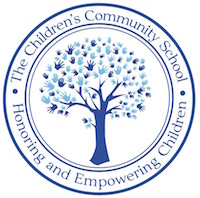Curriculum

CCS is a learning community rooted in a progressive approach to education, in which children and adults are valued as learners and teachers. The emphasis at our preschool is on utilizing practices that educate the whole child—the emotional, social, physical, and intellectual being. We encourage students to use all of their learning resources—visual, kinesthetic, auditory, emotional, and interpersonal—to explore, develop awareness, strengthen connections, and express understanding. We honor childhood and nourish students’ strong sense of connectedness and engagement.
Play-based, emergent curriculum
Our teachers build our curriculum every day in response to the children’s strengths, interests, and needs. As the children play, work, and talk, teachers document the children’s thinking and use their observations to create learning experiences that are meaningful to children. Teachers plan a wide variety of activities and explorations connected to children’s interests; the variety allows children to explore different ideas at different times in different ways. Activities and ideas are revisited over the course of days and weeks, and children’s understanding grows over time.
Play is woven throughout every aspect of our curriculum process. Our experience teaching—and scientific research!—tell us that the learning done through play is the richest, deepest, and most likely to stick long-term. Children’s play gives teachers insight into their strengths, interests, and needs, which the teachers use to create curriculum plans. Activities and lessons are planned to use play and playfulness as tools for learning. Children show their understanding of concepts through their play, which is the context for assessment.
As an example of an emergent, play-based project, one year the Oak class (2-and-3-year-olds) showed a shared interest in superheroes. The Oak teachers guided the children in creating a 3-month project around learning about superheroes which strongly engaged the children’s interests while meeting learning goals for socio-emotional development (learning to listen and respond to others during pretend play); language development (collaborative storytelling activities); physical development (gross-motor “adventures” and “saving the day”); literacy (making books from storytelling activities); math (using shapes and patterns for costume-making); science (investigating physics of making toy people “fly” with catapults); technology (using ropes, pulleys, and levers in “machines” for pretend play); health and safety (exercising self-care during rough play); social studies (recognizing the needs and qualities of others in the stories we shared); and creative arts (costume-making).
The four pillars
There are four areas of learning that drive our teaching and help focus our efforts in the classrooms.
Academics
Within our interdisciplinary curriculum, students are given rich and varied opportunities to develop and practice academic skills and specific content areas. Literacy, math, and science are woven through everyday activities and curriculum, making particular use of play and real-life contexts for learning.
